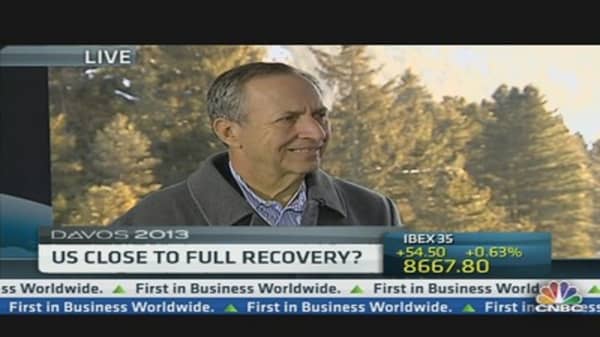Harvard University professor Lawrence Summers told delegates at the World Economic Forum in Davos on Wednesday that the United States was right to focus on reducing its budget deficit, but that it should also make the most of "negligible" long term interest rates to improve the country's healthcare and education systems.
The United States is on track to hit a borrowing limit of $16.4 trillion between mid-February and early March, and economists have warned that hitting the debt ceiling could hurt the U.S. economy.
(Read more:
After Davos: Global Calm or Profound Change?
)
"People have counted the United States out before…And I think people make that mistake now with respect to our economy and with respect to our politics. I think if we seize the moment we have huge and unique opportunities in the world," said Summers, who served as U.S. Treasury Secretary from 1999 to 2001 under President Bill Clinton.



